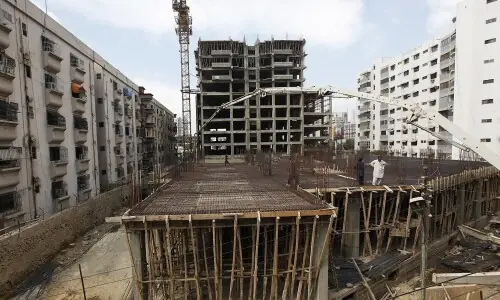RAWALPINDI: Holy Family Hospital (HFH) will be installing a new incinerator which it procured for Rs44 million but has to seek permission from the Punjab Environment Protection Agency (Punjab-EPA) first.
The funds for the incinerator were donated by an international agency. The hospital also plans to repair its old incinerator which went out of order many years ago.
HFH Medical Superintendent Dr Shahzad Ahmed told Dawn the old incinerator will be repaired with government funds.
Meanwhile, environmentalists have raised objections over the installation of the incinerator in the hospital premises as it is located in a densely populated area and the machine will contribute to pollution in the area.
“It may create unrest among locals as incinerators usually generate gases injurious to health,” a senior HFH doctor said.
The hospital has to obtain EPA NOC after environmentalists object to emission of dangerous gases
Talking to Dawn, the doctor said locals had also raised the issue of the old incinerator, which went out of order many years ago, and said it produced carbon dioxide which is injurious to health. EPA will also have to take public view into account before issuing a no-objection certificate (NOC), he explained, and that a public hearing is mandatory for issuing an NOC for the installation of an incinerator.
“If the EPA issues us an NOC, the other teaching hospitals will also apply for an NOC,” he said.
The doctors said that in developed countries, incinerators are installed outside residential areas and hospitals transport medical waste to it.
Approximately two kilograms of waste per bed is generated in the three public hospitals and more than 800 private hospitals and clinics in the city areas every day. About 15pc to 20pc of total hospital waste is considered dangerous to human health and is considered a risk factor for some fatal diseases such as skin diseases, Aids, cancer and hepatitis etc.
Medical experts say some of the waste generated by hospitals including syringes, bandages, glucose bottles, blood bags, and urine bags are not properly disposed of and they may spread fatal diseases in residential areas along Nullah Leh and among the scavengers who segregate waste and collect plastic items from them.
When asked Punjab EPA Deputy Director Shahid Hassan said it has received an application from HFH for an NOC for the installation of the incinerator, a decision on which will be made after a visit of the area is conducted.
He said permission for installing the machine will be given if the company will also install devices to mitigate air and noise pollution. Gases produced by the incinerator should be dealt with properly or it will create health problems for residents of the area, he said.
A public hearing will be held in and around the hospital soon and Punjab EPA will take a decision after checking the equipment and site of installation for the machine.
Published in Dawn, February 5th, 2018

































